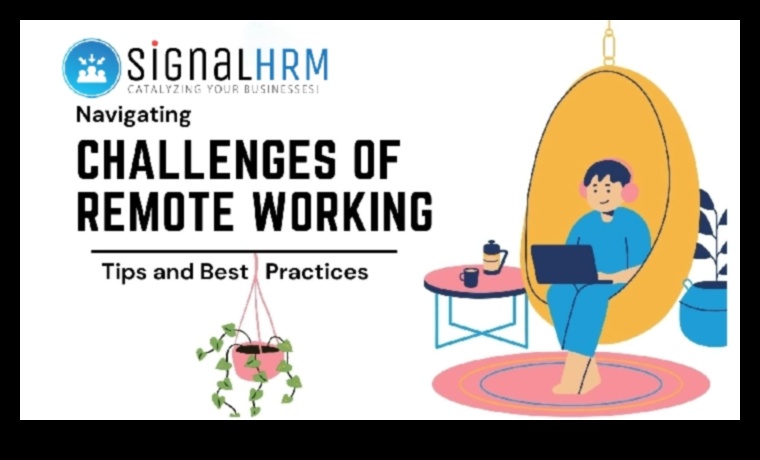
I. Remote work
II. Digital nomad
III. Traveling jobs
IV. Work from anywhere
V. Location independent jobs
VI. Remote-friendly companies
VII. Remote work opportunities
VIII. Benefits of remote work
IX. Drawbacks of remote work
X. FAQ
* travel jobs
* remote work
* work from anywhere
* wanderlust
* digital nomad
People searching for “a job that allows me to travel” are likely looking for a job that will allow them to experience new places and cultures while also earning a living. They may be interested in working in the tourism industry, or they may be looking for a job that allows them to work remotely from anywhere in the world.
The search intent for this keyword is informational. People are looking for information about jobs that allow them to travel, and they are likely to be interested in reading blog posts, articles, and other content that provides this information. They may also be interested in finding job listings for positions that allow them to travel.
Here are some of the specific problems that people searching for this keyword are trying to solve:
* They want to find a job that will allow them to see the world.
* They want to find a job that will allow them to work remotely from anywhere in the world.
* They want to find a job that will allow them to earn a living while also experiencing new cultures.
Here are some of the ways that you can target this search intent with your content:
* Write blog posts and articles about jobs that allow people to travel.
* Share stories about people who have found jobs that allow them to travel.
* Create a job board that lists positions that allow people to travel.
* Promote your content on social media platforms that are popular with people who are interested in travel.
By targeting the search intent of this keyword, you can reach people who are actively looking for jobs that allow them to travel. This can help you generate leads for your business or attract visitors to your website.
| Feature | Travel Jobs | Remote Work | Work from Anywhere | Wanderlust | Digital Nomad |
|---|---|---|---|---|---|
| Job Type | Jobs in the tourism industry, such as tour guides, travel agents, and hotel staff | Jobs that can be done from anywhere with an internet connection, such as software development, marketing, and customer service | Jobs that allow employees to work from their homes or other locations of their choosing | A desire to travel and experience new places | A lifestyle that involves traveling and working from different locations |
| Salary | Varies depending on the job and location | Varies depending on the job and location | Varies depending on the job and location | Varies depending on the individual | Varies depending on the individual |
| Benefits | Opportunities to see new places and cultures, meet new people, and learn new things | Flexibility, autonomy, and freedom to work from anywhere | Work-life balance, reduced stress, and increased productivity | A sense of adventure, excitement, and exploration | A unique lifestyle that allows for travel and personal growth |
| Drawbacks | Can be difficult to find jobs that pay well | Can be isolating and lonely | Can be difficult to stay motivated and focused | Can be expensive to travel long-term | Can be difficult to find a community of other digital nomads |

I. Remote work
Remote work is a type of work arrangement in which employees work from a location other than their employer’s office. This can include working from home, a co-working space, or a coffee shop.
II. Digital nomad
A digital nomad is a person who works remotely and travels the world while doing so. Digital nomads typically work in the technology, marketing, or design industries.

III. Traveling jobs
Traveling jobs are jobs that allow employees to travel while they work. These jobs can include working as a flight attendant, a tour guide, or a cruise ship worker.

IV. Work from anywhere
Work from anywhere is a type of work arrangement in which employees can work from any location that has an internet connection. This can include working from home, a co-working space, or a coffee shop.

V. Location independent jobs
Location independent jobs are jobs that can be done from anywhere in the world. These jobs typically require employees to have a computer and an internet connection.
VI. Remote-friendly companies
Remote-friendly companies are companies that allow employees to work remotely. These companies typically have policies in place that support remote work, such as providing employees with the necessary equipment and technology.
VII. Remote work opportunities
Remote work opportunities are jobs that can be done remotely. These jobs can be found on job boards, online classifieds, and through networking.
VIII. Benefits of remote work
There are many benefits to remote work, including:
* Increased flexibility
* Reduced stress
* Improved work-life balance
* Increased productivity
* Cost savings
IX. Drawbacks of remote work
There are also some drawbacks to remote work, including:
* Isolation
* Lack of face-to-face interaction
* Difficulty setting boundaries between work and personal life
X. FAQ
Q: What are the best jobs for remote work?
A: Some of the best jobs for remote work include:
* Software engineer
* Marketing manager
* Web designer
* Customer service representative
* Data scientist
Q: What are the requirements for remote work?
A: The requirements for remote work vary depending on the job, but some common requirements include:
* A computer and an internet connection
* Strong communication skills
* The ability to work independently
Q: How do I find remote work?
A: There are many ways to find remote work, including:
* Job boards
* Online classifieds
* Networking
Q: What are the benefits of remote work?
A: There are many benefits to remote work, including:
* Increased flexibility
* Reduced stress
* Improved work-life balance
* Increased productivity
* Cost savings
Q: What are the drawbacks of remote work?
A: There are also some drawbacks to remote work, including:
* Isolation
* Lack of face-to-face interaction
* Difficulty setting boundaries between work and personal life
III. Traveling jobs
Traveling jobs are jobs that allow you to work while traveling. This could involve working as a tour guide, a flight attendant, or a digital nomad. There are many different types of traveling jobs available, so you can find one that fits your interests and skills.
If you are interested in finding a traveling job, there are a few things you can do. First, you can research different types of traveling jobs and find one that interests you. Second, you can network with people who are already working in the traveling industry. Third, you can start your own traveling business.
Traveling jobs can be a great way to see the world and earn a living. However, it is important to be aware of the challenges that come with this type of work. For example, you may have to work long hours, deal with jet lag, and live in different countries.
If you are willing to work hard and overcome the challenges, traveling jobs can be a rewarding experience. You will get to see the world, meet new people, and learn about different cultures.
IV. Work from anywhere
Work from anywhere jobs allow you to work remotely from any location in the world. This type of work is becoming increasingly popular, as more and more companies are allowing their employees to work from home or from other locations. There are many benefits to working from anywhere, including the ability to travel, save money on commuting costs, and have a more flexible work schedule.
If you are interested in finding a work from anywhere job, there are a few things you can do. First, you should research companies that are known for being remote-friendly. You can also look for job postings that specifically mention remote work. Finally, you can network with other people who work remotely to learn more about the opportunities that are available.
Here are some of the benefits of working from anywhere:
- You can travel and work at the same time.
- You can save money on commuting costs.
- You can have a more flexible work schedule.
- You can work from anywhere in the world.
Here are some of the drawbacks of working from anywhere:
- You may feel isolated from your colleagues.
- You may have difficulty finding a work-life balance.
- You may have to deal with technical difficulties.
Overall, working from anywhere can be a great option for people who want to have a more flexible and location-independent lifestyle. However, it is important to be aware of the benefits and drawbacks of this type of work before you decide if it is right for you.
V. Location independent jobs
Location independent jobs are jobs that can be done from anywhere in the world. This type of work is becoming increasingly popular, as more and more people are looking for ways to have a flexible and location-independent lifestyle.
There are many different types of location independent jobs, including:
- Freelance writing
- Web design
- Online marketing
- Virtual assistant work
- Software development
If you’re interested in finding a location independent job, there are a few things you can do:
- Network with other people who work remotely.
- Join online communities of location independent workers.
- Sign up for job boards that list remote positions.
- Create a portfolio of your work and start marketing yourself to potential employers.
With a little effort, you can find a location independent job that allows you to work from anywhere in the world and live the lifestyle you want.
II. Digital nomad
A digital nomad is a person who works remotely from anywhere in the world. They typically use technology to do their work, such as a laptop and internet connection. Digital nomads often have a flexible work schedule, which allows them to travel and explore new places.
There are many benefits to being a digital nomad, including:
- The ability to travel and explore new places
- A flexible work schedule
- The opportunity to meet new people and cultures
- A sense of freedom and flexibility
However, there are also some drawbacks to being a digital nomad, such as:
- The challenges of working remotely
- The cost of living in different countries
- The difficulty of staying connected with friends and family
Ultimately, the decision of whether or not to become a digital nomad is a personal one. It is important to weigh the benefits and drawbacks carefully before making a decision.
VII. Remote work opportunities
Remote work opportunities are increasing in popularity as more and more companies adopt a remote-friendly work culture. This means that there are now more opportunities than ever for people to find jobs that allow them to work from anywhere in the world.
There are a number of different ways to find remote work opportunities. Some of the most popular methods include:
- Searching online job boards for remote positions
- Networking with people who work remotely
- Reaching out to companies that you are interested in working for and asking if they have any remote positions available
Once you have found a remote work opportunity that you are interested in, it is important to make sure that you are prepared for the challenges of working remotely. Some of the challenges that you may face include:
- Staying motivated and focused when you are working from home
- Dealing with loneliness and isolation
- Managing your time effectively
If you are able to overcome these challenges, remote work can be a very rewarding experience. You will have the freedom to work from anywhere in the world, set your own hours, and create a work-life balance that works for you.
Benefits of remote work
There are many benefits to working remotely, including:
* Increased flexibility: Remote workers can set their own hours and work from anywhere in the world. This can be a great benefit for people who want to travel or have other commitments outside of work.
* Reduced stress: Remote workers often have less stress than traditional employees. This is because they don’t have to commute to work, they can avoid office politics, and they can take breaks when they need to.
* Improved productivity: Remote workers are often more productive than traditional employees. This is because they have fewer distractions and they can work at their own pace.
* Increased job satisfaction: Remote workers are more satisfied with their jobs than traditional employees. This is because they have more control over their work and they can enjoy a better work-life balance.
Overall, there are many benefits to working remotely. If you’re considering a career in remote work, be sure to weigh the pros and cons carefully to determine if it’s the right fit for you.
IX. Drawbacks of remote work
There are a number of potential drawbacks to remote work, including:
- Lack of face-to-face interaction with colleagues
- Difficulty in establishing a work-life balance
- Increased risk of isolation
- Challenges in managing time and staying productive
- Increased costs of equipment and software
It is important to weigh the benefits and drawbacks of remote work carefully before making a decision about whether or not it is right for you.
FAQ
Q: What are some jobs that allow me to travel?
A: There are many jobs that allow you to travel, including:
- Tourism
- Airline
- Hotel
- Restaurant
- Travel writing
- Digital nomad
Q: What are the benefits of working remotely?
A: There are many benefits to working remotely, including:
- Flexibility
- Freedom
- Increased productivity
- Reduced stress
- Better work-life balance
Q: What are the drawbacks of working remotely?
A: There are some drawbacks to working remotely, including:
- Isolation
- Lack of face-to-face interaction
- Challenges with communication
- Lack of structure